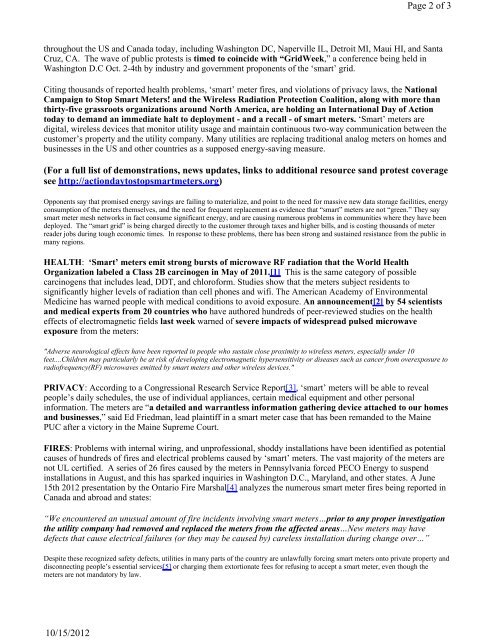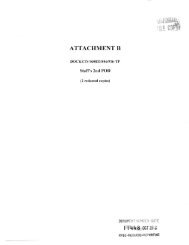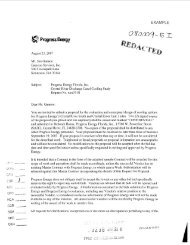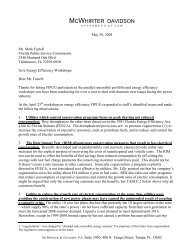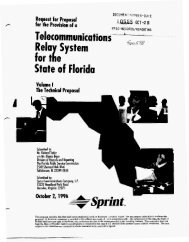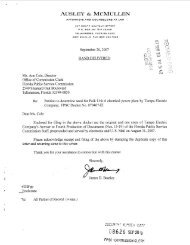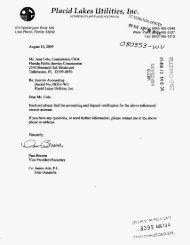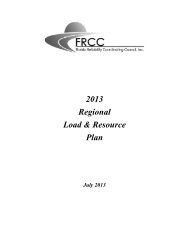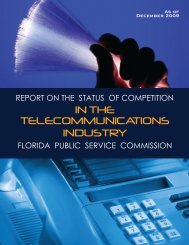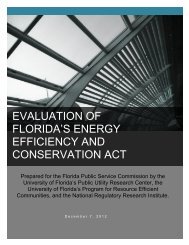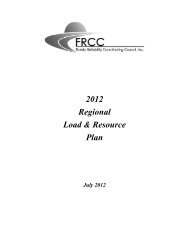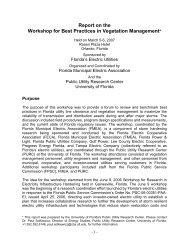Smart Meters - Public Service Commission
Smart Meters - Public Service Commission
Smart Meters - Public Service Commission
Create successful ePaper yourself
Turn your PDF publications into a flip-book with our unique Google optimized e-Paper software.
Page 2 of 3<br />
throughout the US and Canada today, including Washington DC, Naperville IL, Detroit MI, Maui HI, and Santa<br />
Cruz, CA. The wave of public protests is timed to coincide with “GridWeek,” a conference being held in<br />
Washington D.C Oct. 2-4th by industry and government proponents of the ‘smart’ grid.<br />
Citing thousands of reported health problems, ‘smart’ meter fires, and violations of privacy laws, the National<br />
Campaign to Stop <strong>Smart</strong> <strong>Meters</strong>! and the Wireless Radiation Protection Coalition, along with more than<br />
thirty-five grassroots organizations around North America, are holding an International Day of Action<br />
today to demand an immediate halt to deployment - and a recall - of smart meters. ‘<strong>Smart</strong>’ meters are<br />
digital, wireless devices that monitor utility usage and maintain continuous two-way communication between the<br />
customer’s property and the utility company. Many utilities are replacing traditional analog meters on homes and<br />
businesses in the US and other countries as a supposed energy-saving measure.<br />
(For a full list of demonstrations, news updates, links to additional resource sand protest coverage<br />
see http://actiondaytostopsmartmeters.org)<br />
Opponents say that promised energy savings are failing to materialize, and point to the need for massive new data storage facilities, energy<br />
consumption of the meters themselves, and the need for frequent replacement as evidence that “smart” meters are not “green.” They say<br />
smart meter mesh networks in fact consume significant energy, and are causing numerous problems in communities where they have been<br />
deployed. The “smart grid” is being charged directly to the customer through taxes and higher bills, and is costing thousands of meter<br />
reader jobs during tough economic times. In response to these problems, there has been strong and sustained resistance from the public in<br />
many regions.<br />
HEALTH: ‘<strong>Smart</strong>’ meters emit strong bursts of microwave RF radiation that the World Health<br />
Organization labeled a Class 2B carcinogen in May of 2011.[1] This is the same category of possible<br />
carcinogens that includes lead, DDT, and chloroform. Studies show that the meters subject residents to<br />
significantly higher levels of radiation than cell phones and wifi. The American Academy of Environmental<br />
Medicine has warned people with medical conditions to avoid exposure. An announcement[2] by 54 scientists<br />
and medical experts from 20 countries who have authored hundreds of peer-reviewed studies on the health<br />
effects of electromagnetic fields last week warned of severe impacts of widespread pulsed microwave<br />
exposure from the meters:<br />
"Adverse neurological effects have been reported in people who sustain close proximity to wireless meters, especially under 10<br />
feet....Children may particularly be at risk of developing electromagnetic hypersensitivity or diseases such as cancer from overexposure to<br />
radiofrequency(RF) microwaves emitted by smart meters and other wireless devices."<br />
PRIVACY: According to a Congressional Research <strong>Service</strong> Report[3], ‘smart’ meters will be able to reveal<br />
people’s daily schedules, the use of individual appliances, certain medical equipment and other personal<br />
information. The meters are “a detailed and warrantless information gathering device attached to our homes<br />
and businesses,” said Ed Friedman, lead plaintiff in a smart meter case that has been remanded to the Maine<br />
PUC after a victory in the Maine Supreme Court.<br />
FIRES: Problems with internal wiring, and unprofessional, shoddy installations have been identified as potential<br />
causes of hundreds of fires and electrical problems caused by ‘smart’ meters. The vast majority of the meters are<br />
not UL certified. A series of 26 fires caused by the meters in Pennsylvania forced PECO Energy to suspend<br />
installations in August, and this has sparked inquiries in Washington D.C., Maryland, and other states. A June<br />
15th 2012 presentation by the Ontario Fire Marshal[4] analyzes the numerous smart meter fires being reported in<br />
Canada and abroad and states:<br />
“We encountered an unusual amount of fire incidents involving smart meters…prior to any proper investigation<br />
the utility company had removed and replaced the meters from the affected areas…New meters may have<br />
defects that cause electrical failures (or they may be caused by) careless installation during change over…”<br />
Despite these recognized safety defects, utilities in many parts of the country are unlawfully forcing smart meters onto private property and<br />
disconnecting people’s essential services[5] or charging them extortionate fees for refusing to accept a smart meter, even though the<br />
meters are not mandatory by law.<br />
10/15/2012


